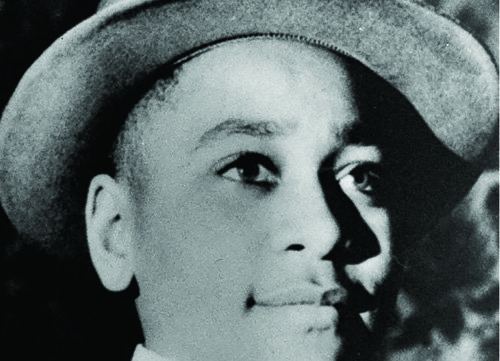
In the middle of the night on August 28, 1955, 14-year-old Emmett Till was taken from his uncle’s Mississippi home. Three days later, his dead body was found.
The young black man’s murder and the acquittal of the men who later confessed to the crime sparked nationwide outrage. The case is often brought up today in the discussions surrounding police violence against African-Americans.
The Okemos Education Foundation hopes to continue this conversation Tuesday with “The Legacy of Emmett Till: Understanding History from Four Perspectives,” a panel discussion on Till’s legacy.
“This is part of the history of each American,” said Martha Hentz, chairwoman of the foundation’s board. “This panel gives us the very rare experience of understanding history from real people.”
The panel comprises four speakers, each with their own perspective on the case and what it means to modern-day race relations. The idea for a panel discussion was born after Okemos High School English teacher Jane Phillips attended a similar event with the National Endowment for the Humanities. She applied for a grant to bring the event to Okemos, and the Okemos Education Foundation agreed to fund the entire project. The panel presents to students during the day, and community members are invited to a public discussion Tuesday evening.
Phillips said the Till case was important because it “galvanized the American Civil Rights Movement.”
“It was published in newspapers; 50,000 people attended Emmett’s funeral,” she said. “It’s important for people to understand this event, because it was pivotal.”
One panelist, Wheeler Parker Jr., is a cousin of Till’s who was present during the event that provoked the murder. Till and a group of young men, including Parker, had stopped by a store to buy candy. There Till allegedly flirted with the white woman managing the store — though whether Till was truly flirting is debated. Because he was present at the time, Wheeler felt his own life could be in danger as well.
“He talks about his fear and how he still lives with fear,” Hentz said.
Chris Crowe, a professor at Brigham Young University, will also speak at the event. Crowe has written fiction and nonfiction books based on the Till case, as well as other works that deal with civil rights history.
FBI agent Dale Killinger will join the conversation via a pre-recorded Skype interview. Killinger, who reopened the murder case in 2004, discusses what he learned in his investigation.
“It’s really amazing what he can contribute to the conversation,” Hentz said. “He knew nothing about the case at first, but he went through thousands and thousands of pages of documents and conducted interviews that he’s able to share.”
The fourth speaker, Tamara Butler, is a professor in the English and African American and African Studies departments at MSU. Her work specializes in youth activism, and her talk aims to show how Till’s case has influenced contemporary issues.
“All the modern movements, like Black Lives Matter and Say Her Name, are part of a longer legacy,” said Butler.
Her hope is that after the panel, attendees “will walk away thinking about their voice — that they have a voice — and what they can do to demand justice.”
Hentz also hopes that hearing firsthand from people who know the case well will impact students and community members.
“It really sticks so much better than learning from a book,” she said. “Every one of our students will remember who he was and why his death changed the course of history for each and every one of us.”
The Legacy of Emmett Till:
Understanding History from Four Perspectives 7 p.m. Tuesday, April 19 FREE, donations welcome Okemos High School Auditorium 2800 Jolly Road, Okemos oefsite.org
Support City Pulse - Donate Today!
Comments
No comments on this item Please log in to comment by clicking here